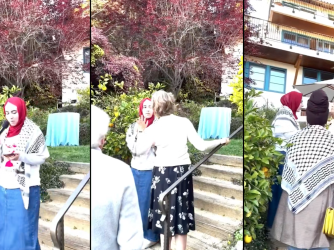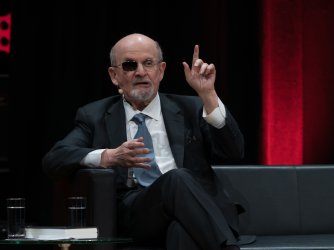Table of Contents
‘Chronicle of Higher Education’ Examines Derecognition of Christian Student Groups

Writing for The Chronicle of Higher Education last week, Christopher Shea took a thorough look at the legal and practical circumstances surrounding the California State University System’s decision to derecognize the student group InterVarsity Christian Fellowship at the system’s 23 campuses because of the group’s refusal to adopt an “all-comers” policy. All-comers policies require groups to accept any student, even as a voting member or leader, and even when that student is hostile to the mission of the group, thus putting the core message and beliefs of the group at risk.
Shea covers the inconsistent legal precedent governing this issue, including the Supreme Court’s 2010 decision in Christian Legal Society v. Martinez, in which the Court held that an all-comers policy at the University of California Hastings College of the Law was constitutionally permissible. Shea notes the effect of this ruling: Many religious student groups are effectively driven off campus when forced to choose between maintaining control over their group’s message and direction or being officially recognized by their institutions.
InterVarsity leaders spoke out about the irony of religious groups’ freedom of association being endangered by the policy:
"The point of a nondiscrimination policy" in the clauses pertaining to religion "is to prevent a religious group from being stigmatized—to treat them equally because of their religious function," said Gregory L. Jao, a national field director of InterVarsity. "We are being penalized by the very policy that was intended to protect us."
Having official recognition rescinded has concrete effects, as Shea explains:
InterVarsity is now barred from official events at which student groups recruit members; on some campuses, it must pay to rent space for meetings (though some Cal State branches waive fees, or reduce them, for unofficial groups). Mr. Jao said the total annual costs could hit $30,000 on some campuses, although Michael Uhlenkamp, a university spokesman, called that figure "highly inflated."
Whatever the numbers are, students should not have to bear an additional burden in order to gather on campus in a group led by someone who adheres to the religious tenets upon which the group was founded.
Check out the rest of Shea’s feature for more about the controversy. For more on the legal background of all-comers policies, check out FIRE’s frequently asked questions on Martinez.
Recent Articles
FIRE’s award-winning Newsdesk covers the free speech news you need to stay informed.

No, the Berkeley Law student didn’t have a First Amendment right to interrupt the dean’s backyard party

Salman Rushdie calls out left-wing censorship in CBS interview

Falsely claiming a First Amendment right at a dinner party at private home — FAN 419.1
